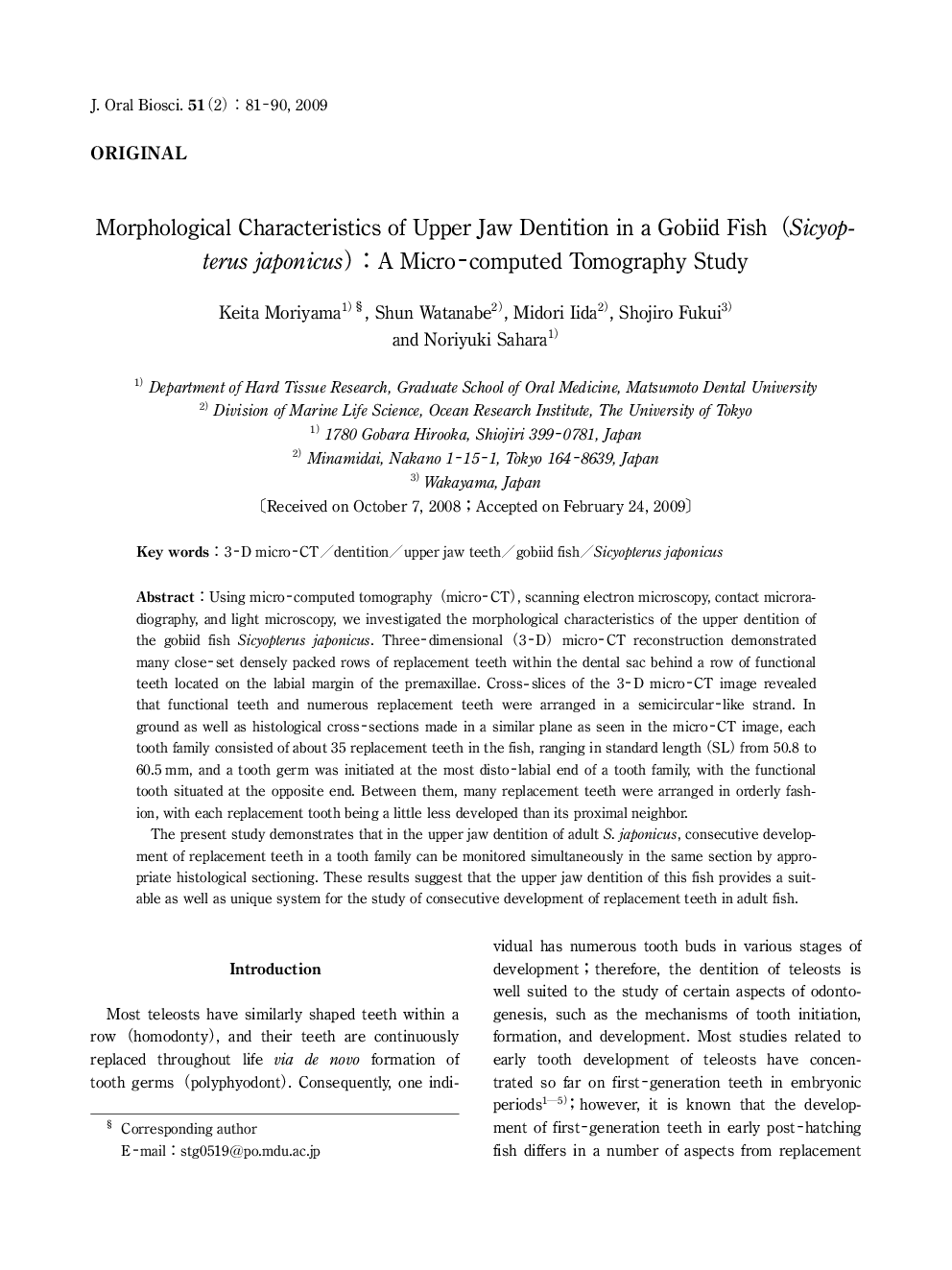| کد مقاله | کد نشریه | سال انتشار | مقاله انگلیسی | نسخه تمام متن |
|---|---|---|---|---|
| 2776850 | 1152642 | 2009 | 10 صفحه PDF | دانلود رایگان |

Using micro-computed tomography (micro-CT), scanning electron microscopy, contact microradiography, and light microscopy, we investigated the morphological characteristics of the upper dentition of the gobiid fish Sicyopterus japonicus. Three-dimensional (3-D) micro-CT reconstruction demonstrated many close-set densely packed rows of replacement teeth within the dental sac behind a row of functional teeth located on the labial margin of the premaxillae. Cross-slices of the 3-D micro-CT image revealed that functional teeth and numerous replacement teeth were arranged in a semicircular-like strand. In ground as well as histological cross-sections made in a similar plane as seen in the micro-CT image, each tooth family consisted of about 35 replacement teeth in the fish, ranging in standard length (SL) from 50.8 to 60.5 mm, and a tooth germ was initiated at the most disto-labial end of a tooth family, with the functional tooth situated at the opposite end. Between them, many replacement teeth were arranged in orderly fashion, with each replacement tooth being a little less developed than its proximal neighbor.The present study demonstrates that in the upper jaw dentition of adult S. japonicus, consecutive development of replacement teeth in a tooth family can be monitored simultaneously in the same section by appropriate histological sectioning. These results suggest that the upper jaw dentition of this fish provides a suitable as well as unique system for the study of consecutive development of replacement teeth in adult fish.
Journal: Journal of Oral Biosciences - Volume 51, Issue 2, 2009, Pages 81-90